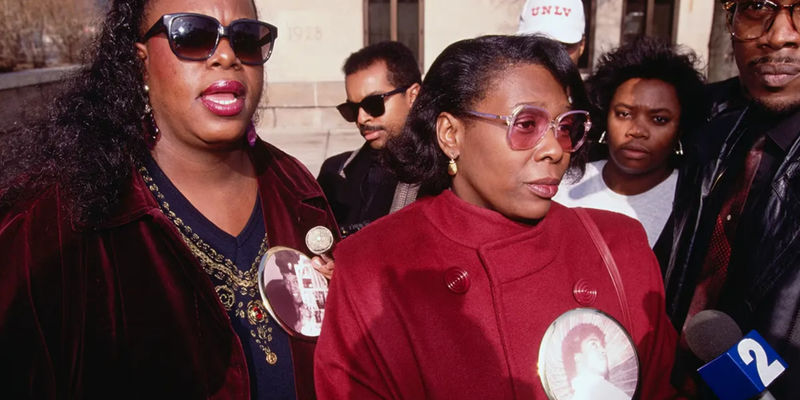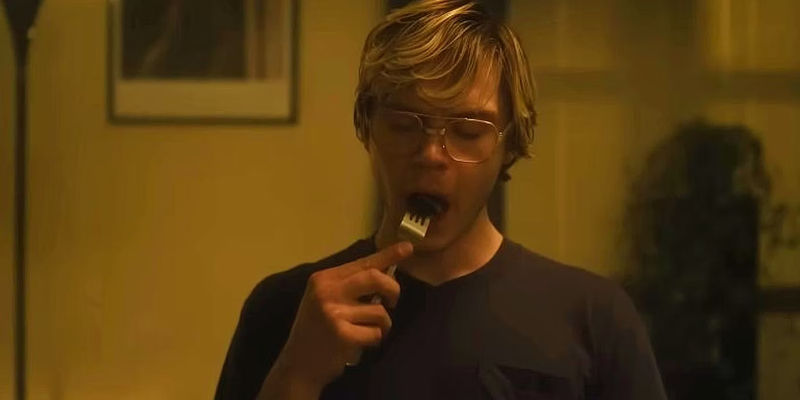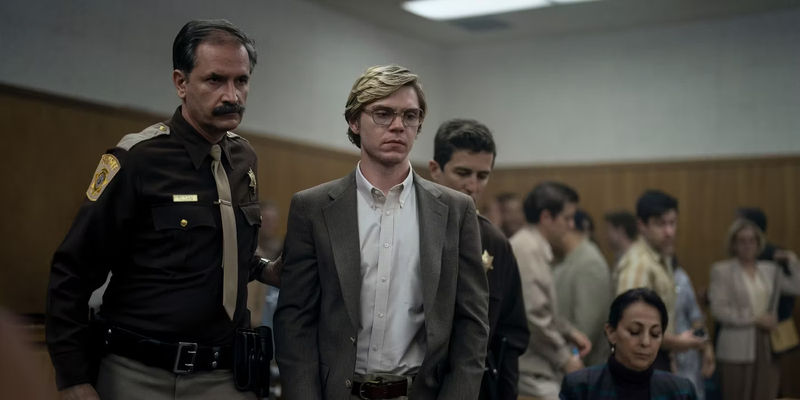
The Truth Behind Netflix's Depiction of Tony Hughes in Monster: The Jeffrey Dahmer Story

A deep dive into the accuracy of Monster: The Jeffrey Dahmer Story's portrayal of Tony Hughes and the impact it had on his family and the murder trial of Jeffrey Dahmer.
The Portrayal of Tony Hughes in Monster: The Jeffrey Dahmer Story
Tony Hughes, Jeffrey Dahmer's 12th victim, is depicted in Netflix’s Monster: The Jeffrey Dahmer Story, but whether this portrayal is accurate has been hotly debated. Hughes was a 31-year-old deaf Black man living in Madison at the time of his kidnapping and murder. Like the majority of Dahmer’s victims, Tony Hughes was tricked into coming to Dahmer’s apartment after meeting him at a gay bar where Hughes was visiting family in Milwaukee at the time. The series follows the entirety of Jeffrey Dahmer's life, but specifically, episode six focuses on the murder of Tony Hughes. In the episode, Hughes was communicating with Dahmer through notes because he was non-verbal when the killer invited Hughes back to his apartment to take photos. Once there, Hughes was drugged, and Dahmer killed him. Hughes’ bones were found in Dahmer's apartment upon his arrest. Tony Hughes’ mother Shirley Hughes, also depicted in Monster, gave a testimony at Dahmer’s murder trial in which she read a heartbreaking poem depicting her son’s final moments. Since the Netflix show, Monster: The Jeffrey Dahmer Story, was released, Shirley Hughes has been outspoken about her disapproval of how it portrayed what happened to her son.
Tony Hughes smiling in Monster- Dahmer
The accuracy of Monster: the Jeffrey Dahmer Story has been hotly debated, and this includes the relationship between Tony Hughes and Jeffrey Dahmer. The main point of contention, in terms of accuracy, is the choice to portray a relationship between Hughes and Dahmer that is both friendly and romantic prior to Hughes' gruesome murder. After his arrest, Jeffrey Dahmer claimed in his confession that the two never met before the night of Hughes' drugging and death, but friends of Hughes said they had seen the two together beforehand. While there is no way to prove whether they had previously met, Shirley Hughes asserts that Monster is inaccurate stating that Dahmer and Tony Hughes' encounter “didn’t happen like that.” Many, particularly the families of the victims, find that the way their relationship is portrayed offensively romanticizes Dahmer.
Shirley Hughes gets interviewed
In addition to its portrayal of Tony, Shirley Hughes has also been more generally critical of the whole project of Monster, accusing it of profiting off of her family and others’ tragedies. Other family members of Jeffrey Dahmer's victims, including Errol Lindsey's sister Rita Isbell, have criticized the way the series depicted their relative's stories and that producers did not consult with them before production. Monster: The Jeffrey Dahmer Story depicts Tony Hughes in a humanizing way, with actor Rodney Burford's performance being praised, and the series emphasizes the systemic injustices that led to Dahmer's victims being ignored. However, family members of victims such as Tony Hughes' mother certainly have a right to feel that the existence of the series at all is making a profit off their tragedy. Creator Ryan Murphy has depicted the victims of real-life crimes before, most notably in American Crime Story: The Assassination of Gianni Versace, but Monster seems to have struck much more of a nerve when it comes to its depiction of real crimes. With Monster set to return for a second season, based on the Menendez brothers, this debate is not likely to be over any time soon.
Evan Peters as Jeffrey Dahmer eating something on a fork in Monster on Netflix
Impact of Shirley Hughes on Jeffrey Dahmer's Murder Trial
Shirley Hughes’ aforementioned reading of a poem at Jeffrey Dahmer’s trial impacted the outcome. She read this during her victim impact statement to the court before sentencing. The poem, written by a friend of Tony Hughes, heartbreakingly details his last moments before his murder, from his own perspective. The piece opens with the line “why am I a victim in your cruel and rueful world?” and ends with Hughes speaking to his mother from the afterlife. His mother finished the reading by signing “I love you”, in American Sign Language. Soon after, Dahmer was handed 16 life sentences for his crimes. The large sentence was likely in no small part due to Shirley Hughes’ powerful words about her son. Later, as depicted in Monster: The Jeffrey Dahmer Story, Dahmer was killed in prison. The Netflix special undoubtedly altered some of the facts for the sake of building a more fluid narrative, and unfortunately, Tony Hughes's story was impacted by these changes.
Dahmer walking past a set of cells
The Debate Over Monster's Depiction of Real Crimes
Ryan Murphy has depicted the victims of real-life crimes before, most notably in American Crime Story: The Assassination of Gianni Versace, but Monster seems to have struck much more of a nerve when it comes to its depiction of real crimes. With Monster set to return for a second season, based on the Menendez brothers, this debate is not likely to be over any time soon.
Evan Peters as Jeffrey Dahmer is led into the courtroom from Monster: The Jeffry Dahmer Story












